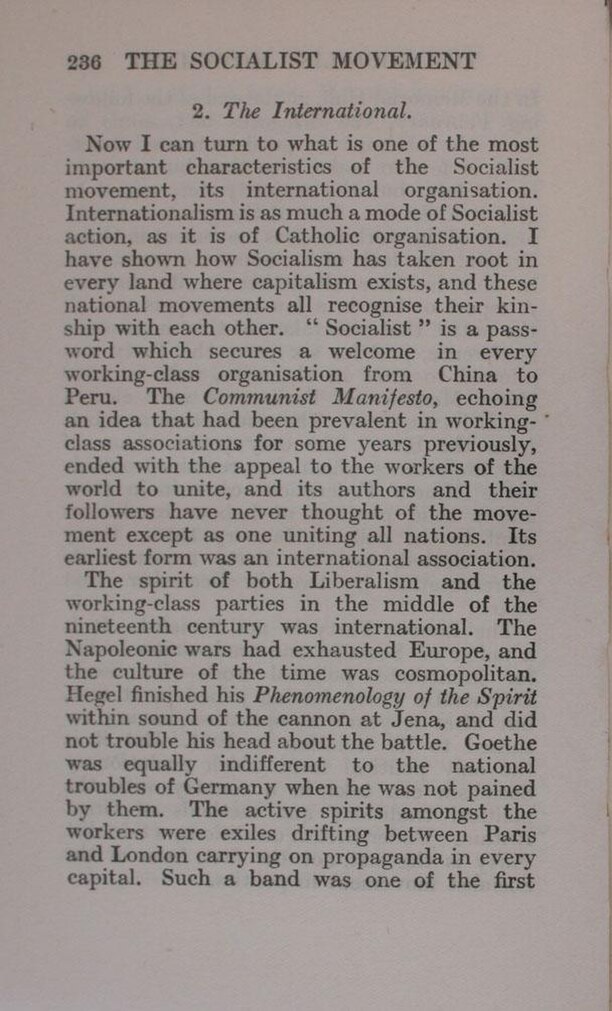2. The International.
Now I can turn to what is one of the most important characteristics of the Socialist movement, its international organisation. Internationalism is as much a mode of Socialist action, as it is of Catholic organisation. I have shown how Socialism has taken root in every land where capitalism exists, and these national movements all recognise their kinship with each other. "Socialist" is a password which secures a welcome in every working-class organisation from China to Peru. The Communist Manifesto, echoing an idea that had been prevalent in working-class associations for some years previously, ended with the appeal to the workers of the world to unite, and its authors and their followers have never thought of the movement except as one uniting all nations. Its earliest form was an international association.
The spirit of both Liberalism and the working-class parties in the middle of the nineteenth century was international. The Napoleonic wars had exhausted Europe, and the culture of the time was cosmopolitan. Hegel finished his Phenomenology of the Spirit within sound of the cannon at Jena, and did not trouble his head about the battle. Goethe was equally indifferent to the national troubles of Germany when he was not pained by them. The active spirits amongst the workers were exiles drifting between Paris and London carrying on propaganda in every capital. Such a band was one of the first
